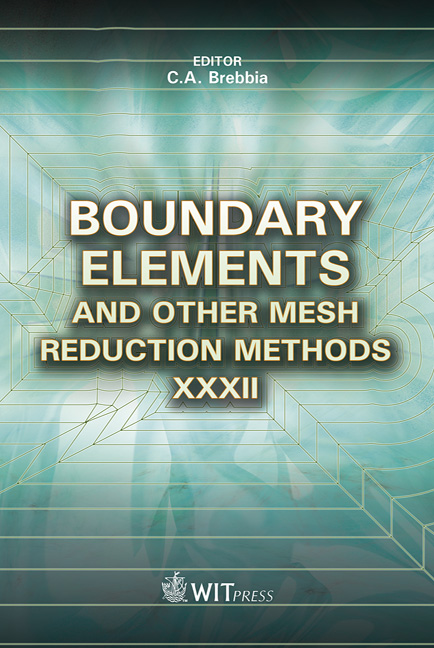Iterative Meshfree Methods For The Helmholtz Equation
Price
Free (open access)
Transaction
Volume
50
Pages
11
Page Range
157 - 167
Published
2010
Size
824 kb
Paper DOI
10.2495/BE100141
Copyright
WIT Press
Author(s)
O. von Estorff & C. Wenterodt
Abstract
For acoustic computations in the mid-frequency range the finite element method (FEM) is a well-known standard tool. Unfortunately, for increasing frequencies, i.e. higher wavenumbers, the FEM suffers from the so-called pollution effect which is mainly a consequence of the dispersion, meaning that the numerical wavenumber and the exact wavenumber disagree. Using meshfree methods as, e.g., the radial point interpolation method (RPIM) or the element-free Galerkin method (EFGM) can reduce this effect significantly. Moreover, meshfree methods allow the usage of shape functions that can be adapted to the differential equation to be solved. Consequently, an iterative method can be derived, which uses a standard meshfree method to compute a first approximation for the given problem. In a second step this approximation is taken to construct new shape functions that are able to better reproduce the wave-like character of the solution. If a few requirements are considered, this method leads to better results in a more efficient way. In this paper two meshfree methods, namely an iterative RPIM and an iterative EFGM, are examined. The methods are compared to the FEM and restrictions for an efficient applicability are shown. Keywords: Helmholtz equation, meshfree methods, acoustics, iterative method, EFGM, RPIM. 1 Introduction In recent yearsmeshfreemethods have attracted more andmore attention in several disciplines of computational mechanics [1]. Especially in the area of computational acoustics, it is well-known that the standard methods as, e.g., the finite
Keywords
Helmholtz equation, meshfree methods, acoustics, iterative method, EFGM, RPIM





